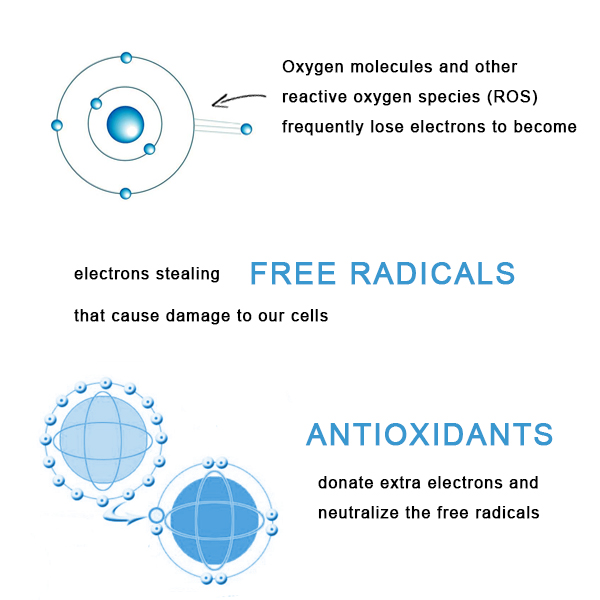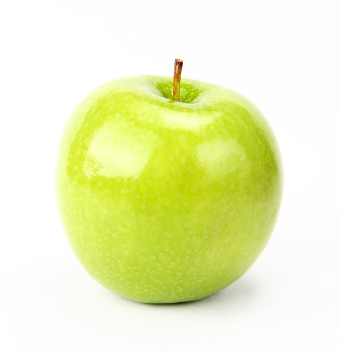The Relationship Between Antioxidants, Dry Mouth & Oral Cancer
 Oral cancer and dry mouth go hand in hand. Oral cancer may cause dry mouth, as does the radiation commonly used to treat it. Antioxidants carried by healthy saliva work as a part of a delicate balance, an “oral ecosystem”, that helps keep oral tissues moist, healthy and cancer-free.
Oral cancer and dry mouth go hand in hand. Oral cancer may cause dry mouth, as does the radiation commonly used to treat it. Antioxidants carried by healthy saliva work as a part of a delicate balance, an “oral ecosystem”, that helps keep oral tissues moist, healthy and cancer-free.
Recent studies have revealed a significant link to a decrease in salivary antioxidants and oral cancer. Research is still being done to determine the nature of this relationship; if its causal, symptomatic or synergistic. What we know for sure is that antioxidants help prevent damage to DNA by neutralizing electron-stealing free radicals (reactive oxygen species). Cancer can result when damaged DNA causes mutations to cells’ tumor-inhibiting proteins.
In healthy cells these proteins prevent cells from multiplying past “critical density”, when they come into contact with other cells. Cancerous cells lack these tumor-inhibiting proteins, causing them to continue to multiply (into more cancerous cells) at an increasing rate. In an indirect sense, free radicals can cause cancer.


This process is called oxidation and it’s essentially the same chemical process that causes metal to rust. The implications are far reaching for oxidation or, as it’s referred to in living tissue, oxidative stress and its relation to aging. This is precisely why antioxidants are touted as a proverbial “fountain of youth”. However, the implications for free radicals, antioxidants and cancer are especially important.
Cancer is the world’s second most devastating disease and oral cancer is manifesting world-wide at an especially alarming rate. The importance of antioxidants and their role in maintaining natural, cancer-free oral health cannot be overstated.
Read the research for yourself here:
This study links free radicals to oxidative stress and damage to DNA and also suggests that a low volume of antioxidants in saliva is therefore a possible precursor to cancer.
Another study compared saliva taken from oral cancer patients to apparently healthy individuals and found a significant decrease in antioxidant levels among the patients with cancer. Additionally, it suggests considering saliva levels and oxidative stress as important indicators for the development of oral cancer.
Salivary sialic acid and oxidative stress could serve as sensitive markers of oral squamous cell carcinoma. (Source: IndMedica)
Yet another study suggests that salivary antioxidants themselves are a potential marker for use in the non-invasive diagnosis of cancer.
Research described in an article about the decrease of antioxidants in older individuals suggests the use of topical antioxidants as a preventative measure against oral cancer,
Salivary oxidative stress-related changes in the intimately related saliva and oral epithelium compounded with higher viscosity of saliva may explain the higher prevalence of oral cancer in the elderly population. Administration of local therapeutic agents (i.e., antioxidants) to the oral cavity should be considered. (Source: 2007 OralCancerNews)
The idea is simple enough…
 Dry oral tissues become damaged easily and damaged cells may cause mutations that result in the development of cancer. Saliva functions as a protective layer on our oral tissues, providing lubrication to prevent damage and chemicals, like antioxidants, to heal damaged tissues. Antioxidants in saliva protect oral tissues by neutralizing free radicals from the foods and drinks we consume, tobacco products and chemicals in the air we breathe.
Dry oral tissues become damaged easily and damaged cells may cause mutations that result in the development of cancer. Saliva functions as a protective layer on our oral tissues, providing lubrication to prevent damage and chemicals, like antioxidants, to heal damaged tissues. Antioxidants in saliva protect oral tissues by neutralizing free radicals from the foods and drinks we consume, tobacco products and chemicals in the air we breathe.
Maintaining healthy antioxidant levels in saliva decreases your chances of oral cancer and soothes the effects of dry mouth. Fruits, vegetables and maintaining healthy habits, like exercise, promote antioxidants in the body naturally. For a more aggressive approach, there are also antioxidant oral care products including toothpastes, mouth rinses and topical gels.

